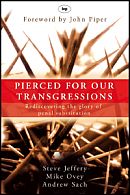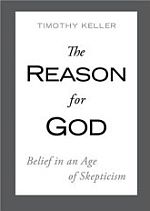 In The Courage to be Protestant, David Wells notes there are three major groups splintering within the evangelical church now that threaten the entire movement’s original cause (though one of them is remaining faithful and seeks to preserve it). There are smaller groups that are splintering of course, but the focus is on the three major movements. The word “evangelicalism” is rooted in the word “evangel” which means Gospel. This was the fundamental basis upon which the phrase “evangelical” came into existence, starting either during or right before the times of the Puritans (based upon the fact that John Owen and Jonathan Edwards used the term themselves in their writings). Now though, things are taking a drastic turn; a turn, in fact, that has not been witnessed in its entire history since the Reformation.
In The Courage to be Protestant, David Wells notes there are three major groups splintering within the evangelical church now that threaten the entire movement’s original cause (though one of them is remaining faithful and seeks to preserve it). There are smaller groups that are splintering of course, but the focus is on the three major movements. The word “evangelicalism” is rooted in the word “evangel” which means Gospel. This was the fundamental basis upon which the phrase “evangelical” came into existence, starting either during or right before the times of the Puritans (based upon the fact that John Owen and Jonathan Edwards used the term themselves in their writings). Now though, things are taking a drastic turn; a turn, in fact, that has not been witnessed in its entire history since the Reformation.
These three distinct groups that are “emerging” (no pun intended) are the Truth-lovers, those who hold a historic protestant understanding of the Gospel as recovered in the Reformation (though all of these people are not necessarily Reformed); the Marketers, that is those who hold to using corporate marketing techniques to, in a sense, manipulate people into the church (marketing primarily to an aging baby-boomer generation); and the Emergents, those who believe it is necessary to adapt and morph Biblical, theological and historical understanding to our postmodern culture in an effort to win them for Christ (marketing themselves primarily to my generation).
While not doubting the good intentions and desires of the Marketers and Emergents, Wells brings stinging indictments that reveals their shift on crucial doctrines of the Gospel itself, which Satan has historically used to tear the church apart from within and eclipse the Gospel itself, all in the name of Christianity. I have not been able to put this book down it is so good. It has really made me consider the need to be even more courageous (yet loving) to hold fast to historic Protestantism (that is the Gospel) in the face of those, even within our churches unfortunately, who employ worldly means to bring people in and in some cases attempt to save themselves through their own doing and “Jesus’ help”.
Within the Marketing and Emergent movements, everything under the sun (including substitutionary atonement even! Check out Al Mohler in this sermon) is being redefined outside of historic, Biblical definitions, but is instead defined upon what our culture thinks, says and wants. However though, in a lot of cases, historic doctrines are held, yet pastors and teachers seem to be ashamed of them and lighten them up significantly, or just never speak about them in the pulpit at all. Are you ashamed of the doctrines of hell, wrath, sin, justice, predestination even? Jesus Himself spoke more about hell than anyone, yet some teachers would make Jesus out to be this guy who spoke some hippie love language.
Shouldn’t we possibly be willing to talk about that which is uncomfortable (sin and wrath in particular) because it is a prerequisite for getting the Gospel right? Isn’t that why people hate us Christians to begin with, precisely because the Gospel is an offensive message to sinful man? And if our message is not met with a good level of opposition, could there possibly be something wrong with our message? It’s the truth, is it not? The Marketers sure do seem to be ashamed of these hard truths though. Are you ashamed of the Bible speaking in terms of absolute truth? The Emergents clearly are, because a majority of people in our culture now are not sure there is any absolute truth, and the Emergents are folding to the pressure to be culturally relevant. They therefore shape their message to fit what the culture wants.
This book is a clear wakeup call for the evangelical church to recover it’s Gospel-roots as its primary focus and not shift on Biblical language, so that we may preserve the movements’ initial cause: the glory of God and the Gospel through which people may be reconciled to God. Either we recover our roots and threads that hold us together, or the historic evangelical cause will be lost. Unfortunately, David Wells believes the movement may already be lost and so it may be time to just move on and start a new movement of Gospel-centrality in the church, for both salvation and progressive sanctification (for growth in our faith). To me, it seems that a new movement is already under way with the advent of the “truth-lovers”. David Wells, summed up, puts it like this in the book:
“It would be quite unrealistic to think that evangelicalism today could look exactly as it did fifty years ago, or a hundred, or five-hundred. At the same time, the truth by which it is constituted never changes because God, whose truth it is, never changes. There should therefore be threads of continuity that bind real Christian believing in all ages. It is some of those threads, I believe, that are now being lost….I do not know what the evangelical future will be, but I am certain evangelicalism has no good future unless it finds this kind of direction again.”
Nowadays, you have everyone from the Oneness Pentecostals to Joel Osteen being called evangelical, yet Osteen is clear that he never wants to speak on anything negative, even if it is true, because it would offend people. Osteen is a Pelagian in his teaching of how people are saved, heresy condemned by an ecumenical early church council, The Council of Orange, in 529 A.D. And then T.D. Jakes does not believe in the Trinity, he’s a Modalist/Sabellian, two heresies, both of which were condemned in the third and fourth centuries. These teachers not only deny historic ecumenical, early church doctrines on the nature of Christ, God, sin (doctrines that even the Roman Catholic Church holds, whom we Protestants have crucial disagreements with over the nature of salvation), but these guys also specifically deny the roots of evangelicalism in not preaching orthodox, Gospel truth. Yet they are called and labeled evangelical! And then if you criticize what they are teaching, that they are in error, in any fashion, you get labeled a bigot, most specifically within the church! There is something seriously wrong with that.
This is a totally unqualified quote with no backing or proof anyone actually said it, but it honestly would not surprise me with the way things are shifting in evangelicalism. Someone told me that a lady had left a Roman Catholic church to go to one of the nearby “evangelical” mega-churches (remaining anonymous) because, “They didn’t teach the Trinity there and I just can’t believe in that.” If this is true (which again, not sure it is), volumes can be said about the methodologies employed at the church, the messages being communicated, the lack of clear truth that isn’t being taught, and most of all, the fact that there is no Gospel whatsoever (the root of evangelicalism), amongst a host of other things.
As those who hold to the historic truths of Christianity as particularly recovered in the Reformation, we must be willing to take abuse for the sake of Gospel-truth and not shift on those doctrines clearly shown to us in the Scriptures. That does not mean we have to stand up and be jerks toward those who differ. In fact, if this just makes you angry and you know you’ll just be mean, please keep quiet. Rather, we should lovingly confront error with the timeless truth of the Scriptures that has been passed down throughout the ages. This book is a proclamation and warning call to hold fast to what is true, even though our times dictate for us to shift our positions. David Wells says, “It takes no courage to sign up as a Protestant.” However, to be a theologically historic Protestant is increasingly taking more guts. Lord, help us to hold fast to what is true by Your Spirit.
 As with most Google products, many of which I use, simplicity seems to be the overarching theme. This is good for many of their applications, such as Google Talk and Earth, which makes it easy for the average user to navigate and operate. However, I must admit, I was hoping for a bit more functionality with the release of this new browser. Because it lacks some of the “out-of-the-box” functionality of Firefox and even IE (such as a basic menu toolbar), it fell short of my expectations.
As with most Google products, many of which I use, simplicity seems to be the overarching theme. This is good for many of their applications, such as Google Talk and Earth, which makes it easy for the average user to navigate and operate. However, I must admit, I was hoping for a bit more functionality with the release of this new browser. Because it lacks some of the “out-of-the-box” functionality of Firefox and even IE (such as a basic menu toolbar), it fell short of my expectations.
 This was a great read. The back and forth style between a writer for ESPN (Ted Kluck) and a pastor at a church in East Lansing, MI (Kevin DeYoung) has made for an excellent combination of perspectives on the emerging church movement. On the one hand, Kluck is coming at it from a very down-to-earth, journalistic, street level perspective, giving you a cultural view from all kinds of sources and personal interviews. And on the other hand, DeYoung is taking apart the movement from a theological point of view, affirming the things that are positive about it, and denying the things that are Scripturally contradictory.
This was a great read. The back and forth style between a writer for ESPN (Ted Kluck) and a pastor at a church in East Lansing, MI (Kevin DeYoung) has made for an excellent combination of perspectives on the emerging church movement. On the one hand, Kluck is coming at it from a very down-to-earth, journalistic, street level perspective, giving you a cultural view from all kinds of sources and personal interviews. And on the other hand, DeYoung is taking apart the movement from a theological point of view, affirming the things that are positive about it, and denying the things that are Scripturally contradictory.


 This video series is apparently sweeping the country in youth groups. And while I don’t doubt that there are a lot of good things that can be taken away from this series, we must pay very close attention to 1) how things are said (mainly the Gospel itself), and 2) what is not said (pertaining to the essential message of the Gospel). This series of reviews points out the high points of the series, but also the deficiencies when compared with the historic Christian faith message we have been entrusted with. Brothers and sisters, “We must pay much closer attention to what we have heard, lest we drift away from it.” (
This video series is apparently sweeping the country in youth groups. And while I don’t doubt that there are a lot of good things that can be taken away from this series, we must pay very close attention to 1) how things are said (mainly the Gospel itself), and 2) what is not said (pertaining to the essential message of the Gospel). This series of reviews points out the high points of the series, but also the deficiencies when compared with the historic Christian faith message we have been entrusted with. Brothers and sisters, “We must pay much closer attention to what we have heard, lest we drift away from it.” (

 Man this is cool. I finally spent the time learning how to set this up, and it was quite some work, but appears to be well worth it. I have a PPTP VPN already setup, but I wanted to set something else up because the Microsoft encryption algorithm just isn’t that secure (when compared with the top level AES-256 encryption). OpenVPN is awesome, because for one, it’s free. And two, it is unbelievably secure (when set up properly). The one downside is its lack of user-friendliness. I had to read a lot of the manual to get various functions to finally work. Also, everything, both on the server and client sides, is text file based. I can handle that, but many people cannot and I can understand that. But before you even start with this, you need a good networking foundation of how VPN networking works because many of the concepts will be alien to you if you don’t. So for those who just want a quick and easy VPN to connect into their home network, just stick with Microsoft’s PPTP VPN. But for those who really want tight security between their network and a remote location and who don’t have any money :), this is the solution for you. Be ready to do some reading and banging your head against your keyboard at times though. It took me a couple of days to finally get it working. Keyword is patience …
Man this is cool. I finally spent the time learning how to set this up, and it was quite some work, but appears to be well worth it. I have a PPTP VPN already setup, but I wanted to set something else up because the Microsoft encryption algorithm just isn’t that secure (when compared with the top level AES-256 encryption). OpenVPN is awesome, because for one, it’s free. And two, it is unbelievably secure (when set up properly). The one downside is its lack of user-friendliness. I had to read a lot of the manual to get various functions to finally work. Also, everything, both on the server and client sides, is text file based. I can handle that, but many people cannot and I can understand that. But before you even start with this, you need a good networking foundation of how VPN networking works because many of the concepts will be alien to you if you don’t. So for those who just want a quick and easy VPN to connect into their home network, just stick with Microsoft’s PPTP VPN. But for those who really want tight security between their network and a remote location and who don’t have any money :), this is the solution for you. Be ready to do some reading and banging your head against your keyboard at times though. It took me a couple of days to finally get it working. Keyword is patience …